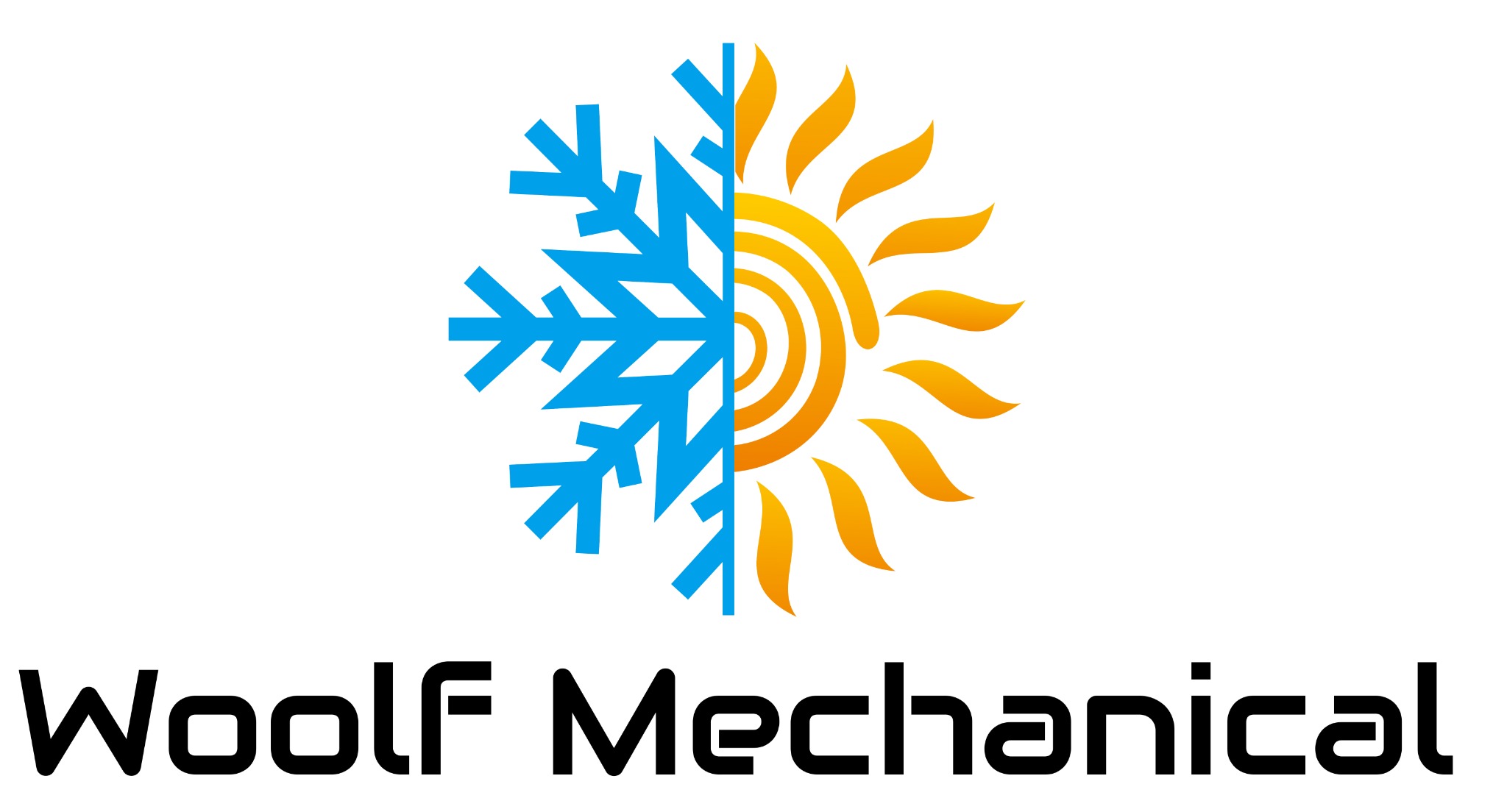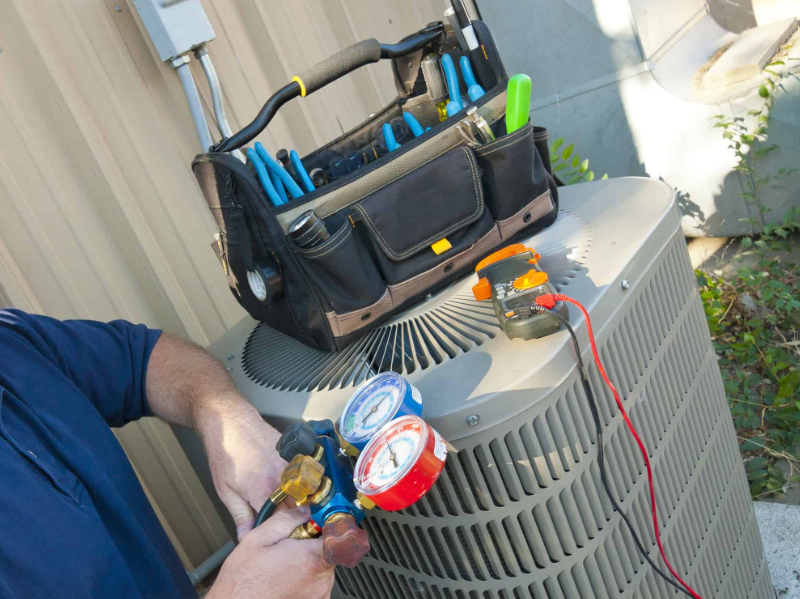Signs Your HVAC System Needs Repair
Your HVAC (Heating, Ventilation, and Air Conditioning) system plays a crucial role in maintaining a comfortable indoor environment. However, like any other mechanical system, it can experience wear and tear over time. Identifying signs of trouble early can save you from costly repairs and ensure your system operates efficiently. If you notice any of the following warning signs, it may be time to schedule an HVAC repair.
1. Weak or Inconsistent Airflow
One of the first signs of HVAC trouble is weak or uneven airflow. If you notice that some rooms in your home are not getting enough air, or there’s a significant difference in airflow between vents, your system may have a blockage, ductwork issues, or a failing blower motor. Addressing this problem promptly can prevent further damage and maintain indoor comfort.
2. Unusual Noises
While HVAC systems are not entirely silent, unusual noises like banging, screeching, rattling, or grinding indicate underlying issues. Common causes include:
- Banging or clanking: Loose or broken parts inside the unit.
- Screeching: A problem with the blower motor or fan belt.
- Grinding: Possible motor failure.
- Rattling: Loose screws or debris in the system.
Ignoring these sounds can lead to more extensive and expensive repairs down the line.
3. Foul or Unusual Odors
Unpleasant odors from your HVAC system should not be ignored. Different smells may indicate various issues:
- Burning smell: Overheating components or electrical issues.
- Musty odor: Mold or mildew in the ducts.
- Rotten egg smell: A possible gas leak (if your system uses gas).
If you detect any strange smells, it’s best to turn off your system and call an HVAC professional immediately.
4. Frequent Cycling or Short Cycling
Your HVAC system should operate in regular cycles to maintain a consistent temperature. However, if it turns on and off too frequently (short cycling), there could be a problem with the thermostat, clogged filters, or an improperly sized unit. Short cycling can put stress on the system, leading to increased wear and higher energy bills.
5. Increased Energy Bills
If your energy bills have unexpectedly spiked, your HVAC system may not be operating efficiently. Possible reasons include:
- Dirty or clogged filters restricting airflow.
- A failing compressor or motor working harder than necessary.
- Leaky ducts causing air loss.
A professional inspection can help identify and resolve the issue before it worsens.
6. HVAC System Blows Warm or Cold Air Inconsistently
If your air conditioner is blowing warm air during the summer or your heater is delivering cold air in winter, your system may need repair. Possible causes include:
- Refrigerant leaks in air conditioners.
- A failing thermostat.
- A malfunctioning blower or compressor.
- Duct leaks affecting airflow.
Prompt attention can restore proper operation and prevent further damage.
7. Moisture or Leaks Around the Unit
Excess moisture or visible leaks around your HVAC unit could indicate a refrigerant leak, clogged condensate drain, or issues with the evaporator coil. Refrigerant leaks not only reduce system efficiency but can also pose health risks. If you notice pooling water or excess moisture, have a technician inspect the system immediately.
8. Thermostat Issues
A malfunctioning thermostat can cause temperature inconsistencies and discomfort. Signs of thermostat problems include:
- The system not responding to thermostat adjustments.
- Different temperatures in various rooms.
- The unit not turning on or off correctly.
Upgrading to a programmable or smart thermostat can improve efficiency and comfort while reducing energy costs.
9. Poor Indoor Air Quality
Your HVAC system helps regulate indoor air quality, and if you notice an increase in dust, allergens, or humidity levels, it may need maintenance. Clogged filters, dirty ducts, and failing components can reduce air quality, leading to respiratory issues and discomfort. Regular maintenance, including filter replacements and duct cleaning, can help maintain a healthy indoor environment.
10. System Age and Frequent Repairs
HVAC systems typically last 10-15 years with proper maintenance. If your system is nearing or exceeding this lifespan and requiring frequent repairs, it may be more cost-effective to replace it rather than continue investing in repairs. Newer systems are more energy-efficient and can significantly reduce utility bills.
How to Prevent HVAC Issues
To minimize the risk of costly repairs, follow these maintenance tips:
- Change filters regularly: Replace or clean air filters every 1-3 months.
- Schedule annual maintenance: Have a professional inspect and service your HVAC system at least once a year.
- Keep vents and ducts clean: Ensure proper airflow by keeping vents unblocked and ducts clean.
- Monitor energy usage: Sudden spikes in energy bills can indicate efficiency issues.
- Upgrade outdated components: Consider installing a smart thermostat or upgrading to an energy-efficient system.
When to Call a Professional
If you notice any of the signs mentioned above, it’s best to consult an HVAC technician rather than attempting DIY repairs. A professional can diagnose issues accurately, perform necessary repairs, and ensure your system runs efficiently.
Conclusion
Recognizing the warning signs of HVAC trouble early can save you money, improve comfort, and extend the lifespan of your system. Whether it’s weak airflow, strange noises, thermostat malfunctions, or increased energy bills, timely repairs can prevent small issues from turning into major breakdowns. Regular maintenance and professional inspections will keep your HVAC system running smoothly, providing you with reliable heating and cooling year-round. If you suspect a problem, don’t hesitate to contact an HVAC professional to address it before it worsens.

